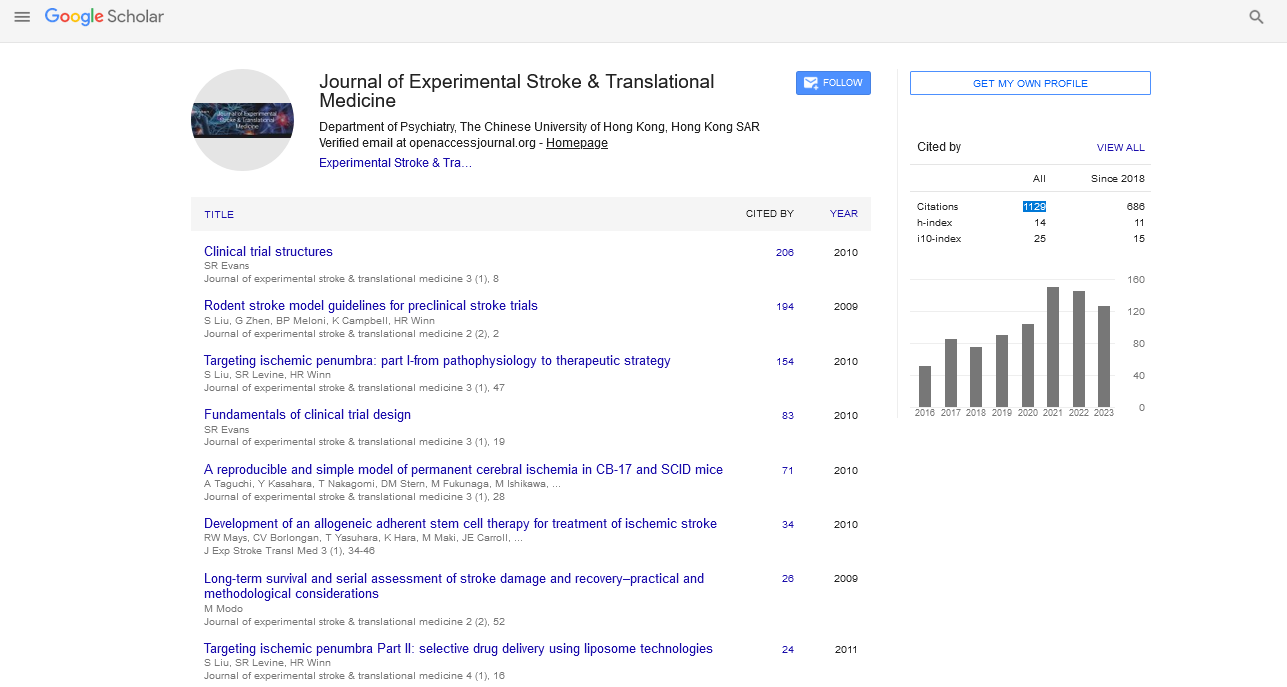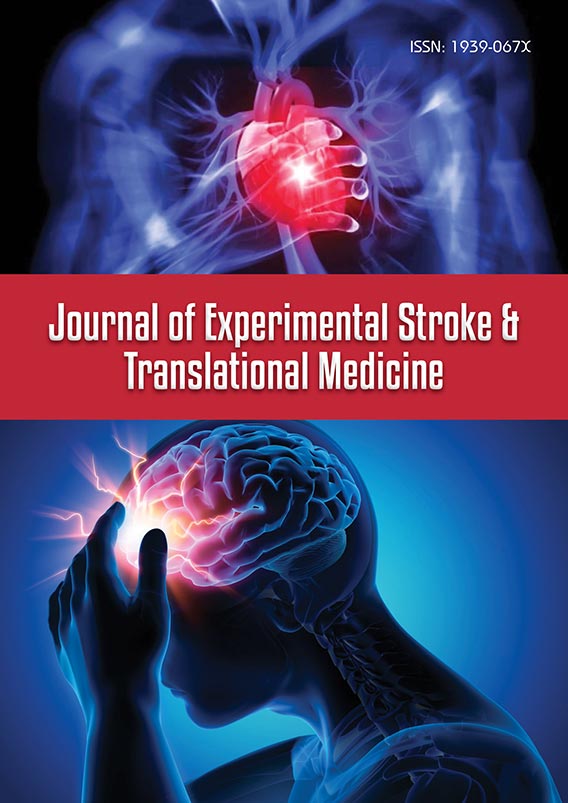Perspective - Journal of Experimental Stroke & Translational Medicine (2024) Volume 16, Issue 4
Exploring the Complex World of Gastrointestinal Microbial Symbiosis
- Corresponding Author:
- Zaili Rusli
Department of Gastroenterology,
Chengdu University of Technology,
Chengdu,
China
E-mail: zaili.rusli@lecture.unriac.id
Received: 04-Jul-2024, Manuscript No. jestm-24-140734; Editor assigned: 09-Jul-2024, PreQC No. jestm-24-140734 (PQ); Reviewed: 23-Jul-2024, QC No. jestm-24-140734; Revised: 01-Aug-2024, Manuscript No. jestm-24-140734 (R); Published: 29-Aug-2024, DOI: 10.37532/jestm.2024.16(4).221-222
Introduction
In the intricate tapestry of the human body, the Gastrointestinal (GI) tract stands as a bustling ecosystem where countless organisms thrive in symbiotic harmony. Among these inhabitants, a diverse array of microbial communities plays pivotal roles in maintaining human health and well-being. This article delves into the fascinating world of gastrointestinal microbial symbiosis, shedding light on its significance, mechanisms and implications for human health.
Description
Understanding microbial symbiosis in the GI tract
The GI tract hosts a vast and diverse community of microorganisms, collectively known as the gut microbiota. These include bacteria, archaea, fungi, viruses and other microorganisms, which coexist in a delicately balanced ecosystem. The composition of gut microbiota can vary widely between individuals, influenced by factors such as diet, genetics and environment.
Microbial symbiosis refers to the mutually beneficial relationship between these microorganisms and their human host. This relationship is symbiotic in nature, meaning both parties derive benefits from their association. For humans, the gut microbiota provides essential functions that contribute to digestion, metabolism, immune function and even neurological processes.
Functions of gut microbiota
Digestion and nutrient absorption: Gut microbiota play a crucial role in breaking down complex carbohydrates, fibers and other indigestible compounds that human enzymes cannot process alone. This process releases short-chain fatty acids and other metabolites that can be absorbed and utilized by the host.
Immune regulation: The gut microbiota interacts closely with the immune system, helping to educate and regulate immune responses. This interaction is crucial for maintaining immune tolerance, preventing inflammation and protecting against pathogens.
Metabolism and energy regulation: Studies have linked gut microbiota composition to metabolic diseases such as obesity and diabetes. Certain bacteria in the gut can influence energy extraction from food and storage, impacting overall metabolic health.
Synthesis of vitamins and neurotransmitters: Some gut bacteria produce vitamins (e.g., vitamin K, B vitamins) that are essential for human health. Additionally, gut microbiota can influence the production of neurotransmitters like serotonin, impacting mood and behavior.
Mechanisms of microbial symbiosis
The symbiotic relationship between gut microbiota and their human host operates through various mechanisms.
Metabolic interactions: Gut bacteria metabolize dietary components into metabolites that are beneficial to the host.
Barrier function: Gut microbiota help maintain the integrity of the intestinal barrier, preventing the translocation of harmful substances from the gut lumen into systemic circulation.
Immune modulation: Microbial molecules interact with immune cells, influencing immune responses and promoting immune tolerance.
Factors influencing gut microbiota composition
Several factors shape the composition and diversity of gut microbiota.
Diet: Different dietary patterns can significantly impact the types of bacteria present in the gut. For instance, high-fiber diets promote the growth of fiber-digesting bacteria.
Antibiotic use: Antibiotics can disrupt gut microbiota composition, leading to temporary or long-term alterations.
Host genetics: Genetic factors influence susceptibility to certain diseases and can also shape the gut microbiota composition.
Environment and lifestyle: Factors such as stress, physical activity and exposure to pollutants can influence gut microbiota diversity and function.
Implications for human health
The importance of gastrointestinal microbial symbiosis extends far beyond digestion and nutrient absorption. Emerging research has highlighted its implications for various aspects of human health.
Gut-brain axis: The bidirectional communication between the gut and the brain, mediated by gut microbiota, plays a crucial role in mental health and neurological disorders.
Autoimmune diseases: Dysbiosis or imbalance in gut microbiota, has been implicated in autoimmune conditions such as Inflammatory Bowel Disease (IBD) and rheumatoid arthritis.
Metabolic disorders: Imbalances in gut microbiota composition have been associated with obesity, diabetes and metabolic syndrome.
Cancer: Some studies suggest that gut microbiota may influence the development of colorectal cancer through mechanisms such as inflammation and toxin metabolism.
herapeutic implications and future directions
The dynamic nature of gut microbiota opens up new avenues for therapeutic interventions. Strategies such as probiotics (live microorganisms that confer health benefits), prebiotics (compounds that promote the growth of beneficial bacteria) and Fecal Microbiota Transplantation (FMT) are being explored for their potential to restore microbial balance and treat various disorders.
Future research aims to deepen our understanding of the intricate interactions within the gut microbiota and their impact on human health. Advances in technology, such as metagenomics and metabolomics, allow for a more comprehensive analysis of microbial communities and their functional roles.
Conclusion
In conclusion, gastrointestinal microbial symbiosis represents a fascinating intersection of biology, health and medicine. The symbiotic relationship between gut microbiota and their human hosts underscores the importance of maintaining a balanced and diverse microbial community for optimal health. As research continues to unravel the complexities of this relationship, it promises new insights and therapeutic opportunities to enhance human well-being and treat a wide range of diseases. Understanding and harnessing the power of gastrointestinal microbial symbiosis may indeed pave the way for innovative approaches in personalized medicine and preventive healthcare.

